MIND Philosophy Series
How do philosophy and psychedelics inform each other ?
The MIND Philosophy series intends to provide an accessible overview of philosophical issues that arise in relation to psychedelics, psychedelic use, and psychedelic research.
The ten lectures taking place between April and December 2022 are not only addressed to philosophers and those who seek to become ones but also to people who are interested in psychedelic experiences but do not have philosophical backgrounds.
In doing so, we hope to achieve two goals:
- to show why psychedelic experiences are interesting to philosophers and require conceptual and theoretical work
- to provide insights as to how academic philosophy can help us think about and understand what psychedelic experiences are
The series encompasses all the main fields of philosophy and hence covers the conceptual, epistemological, metaphysical, ethical, and cultural implications of psychedelic experiences.
The curator of the series is Dr. Chris Letheby, Lecturer in Philosophy at the University of Western Australia and a member of the Scientific Advisory Board of the MIND Foundation.
Past Events
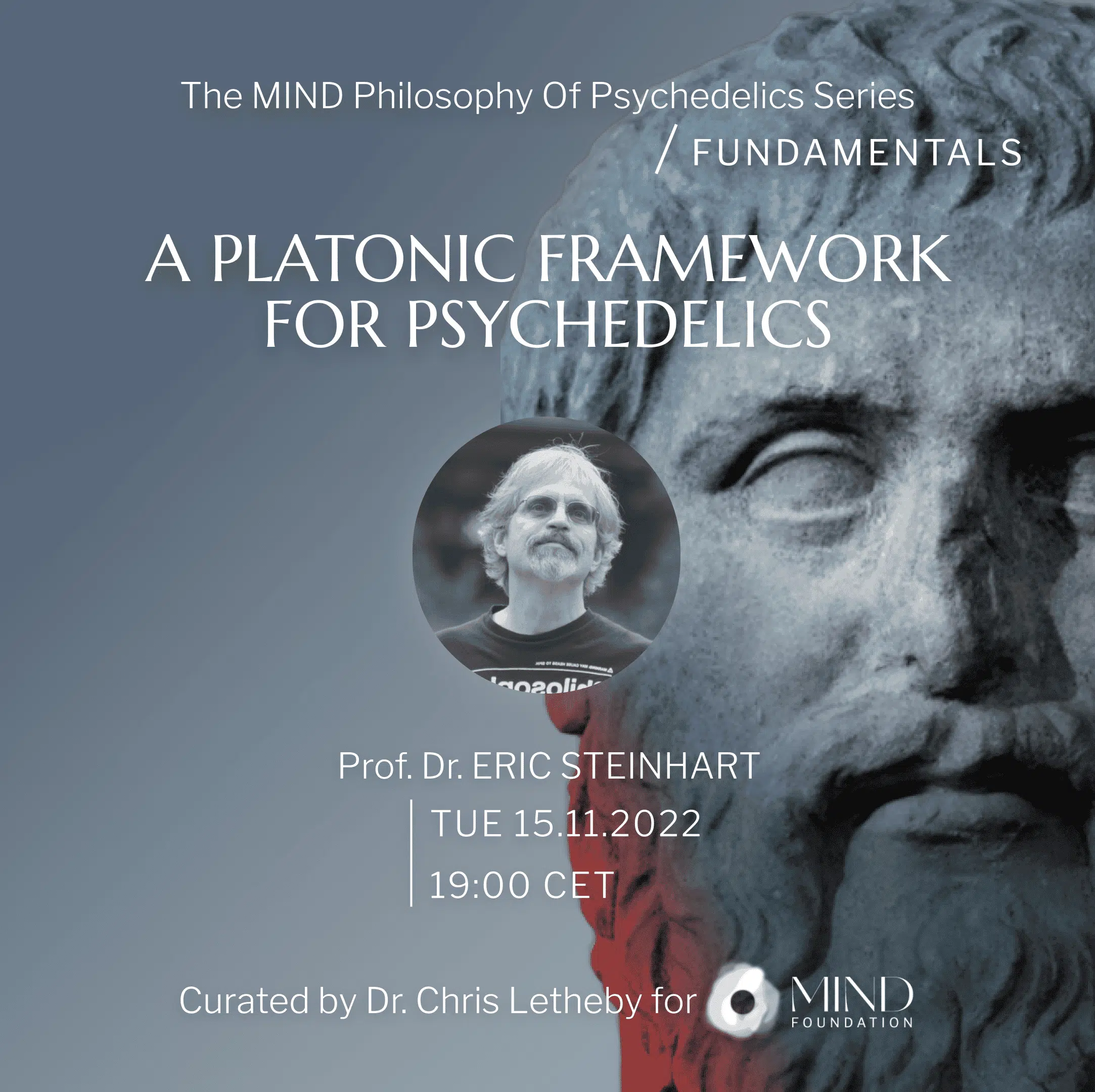
Psychedelics typically produce eruptions of rich new experiential data in the brain, data which needs to be interpreted and integrated into ordinary life. Powerful forces in Western religious culture, as well as in the history of psychedelics in the West, strongly work to shape this data into patterns found in Western theism or esotericism. Beliefs produced by theistic-esoteric interpretations are often profoundly inconsistent with both the scientific worldview, with common sense, and with ethical life in a technological society. However, recent work in religious and spiritual naturalism shows how psychedelic experiences can be understood within a broadly naturalistic framework. One version of spiritual naturalism is inspired by ancient and modern Platonism. This atheistic Platonism shows how psychedelic experiences can be objectively true and meaningful. It provides a metaphysics for psychedelics which is neither theistic nor esoteric. Platonism preserves consistency with our best science, our best ethics, and with life in a technological society.
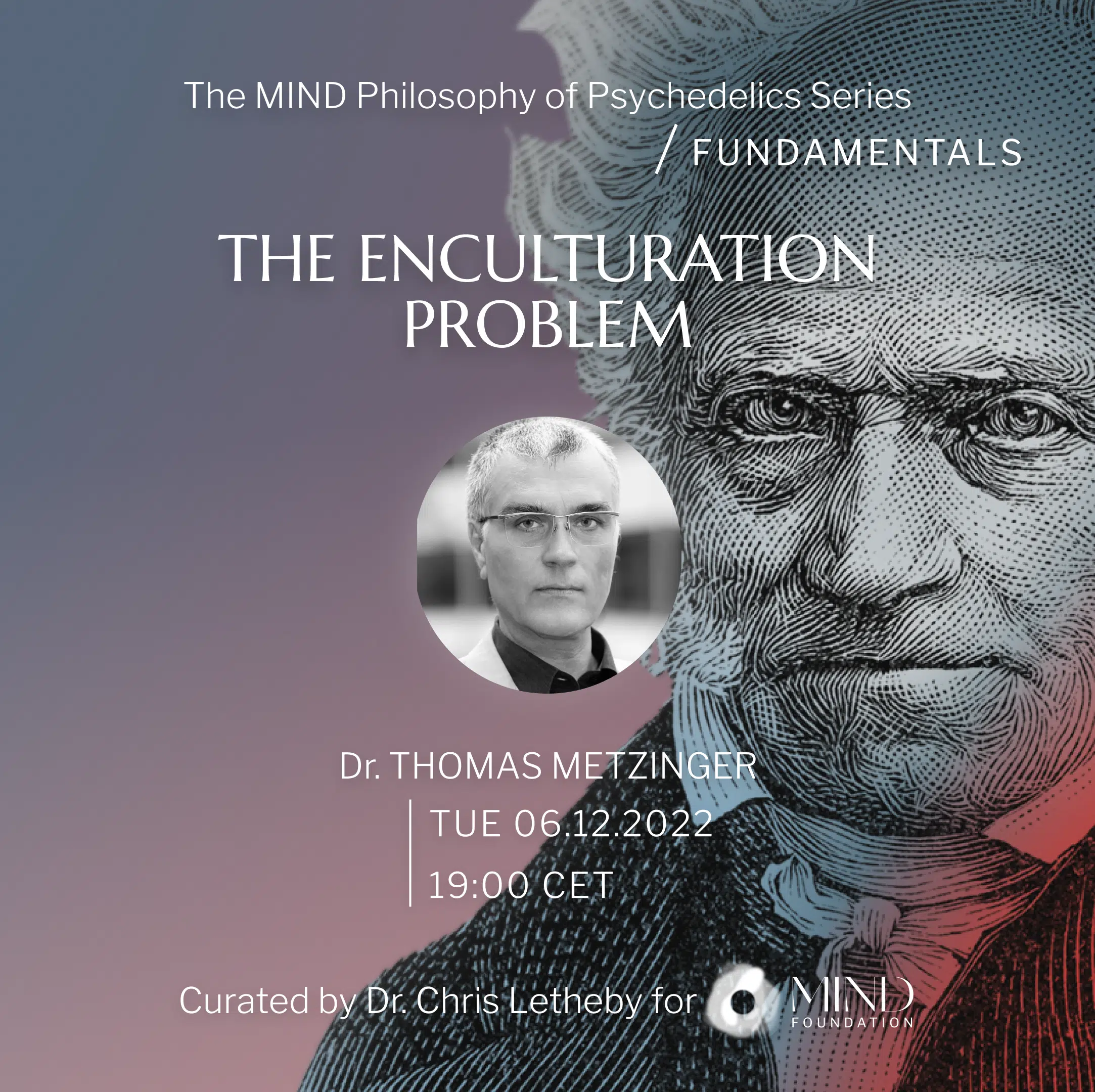
In the 10th and final webinar of the MIND Philosophy Series, Dr. Thomas Metzinger discusses how the psychedelic experience can be culturally integrated and gives concrete and practical suggestions for doing so.
The “enculturation problem” is the problem of how to integrate the psychedelic experience into culture and societal practice, in a way that is rational, evidence-based, and ethically convincing. To a first approximation, the enculturation problem can be framed as a problem for applied ethics and policy-making: How can the psychedelic experience be culturally integrated in a way that minimizes risks and maximizes benefits for society as a whole?
In this talk, I will first briefly explain the concept of a “consciousness culture” and argue that it would be a mistake to simply legalize the classical hallucinogens, but that the real challenge lies in fostering a very careful, ethically motivated, and scientifically grounded process of “enculturation”: A process of creating a new cultural context in which all members of society can profit from the intrinsic value of these psychoactive substances, while at the same time minimizing risks and cultivating a rational, evidence-based strategy for harm reduction. I will then formulate a “minimal enculturation model” to dissolve the current gridlock by making a concrete proposal so simple that most counterarguments automatically expose themselves as being intellectually dishonest—because they are not supported by empirical evidence and are unrealistic, irrational, and merely ideological. In this spirit, I will offer a first blueprint for an enculturation protocol, which comes as a list of six constraints I believe should be satisfied.
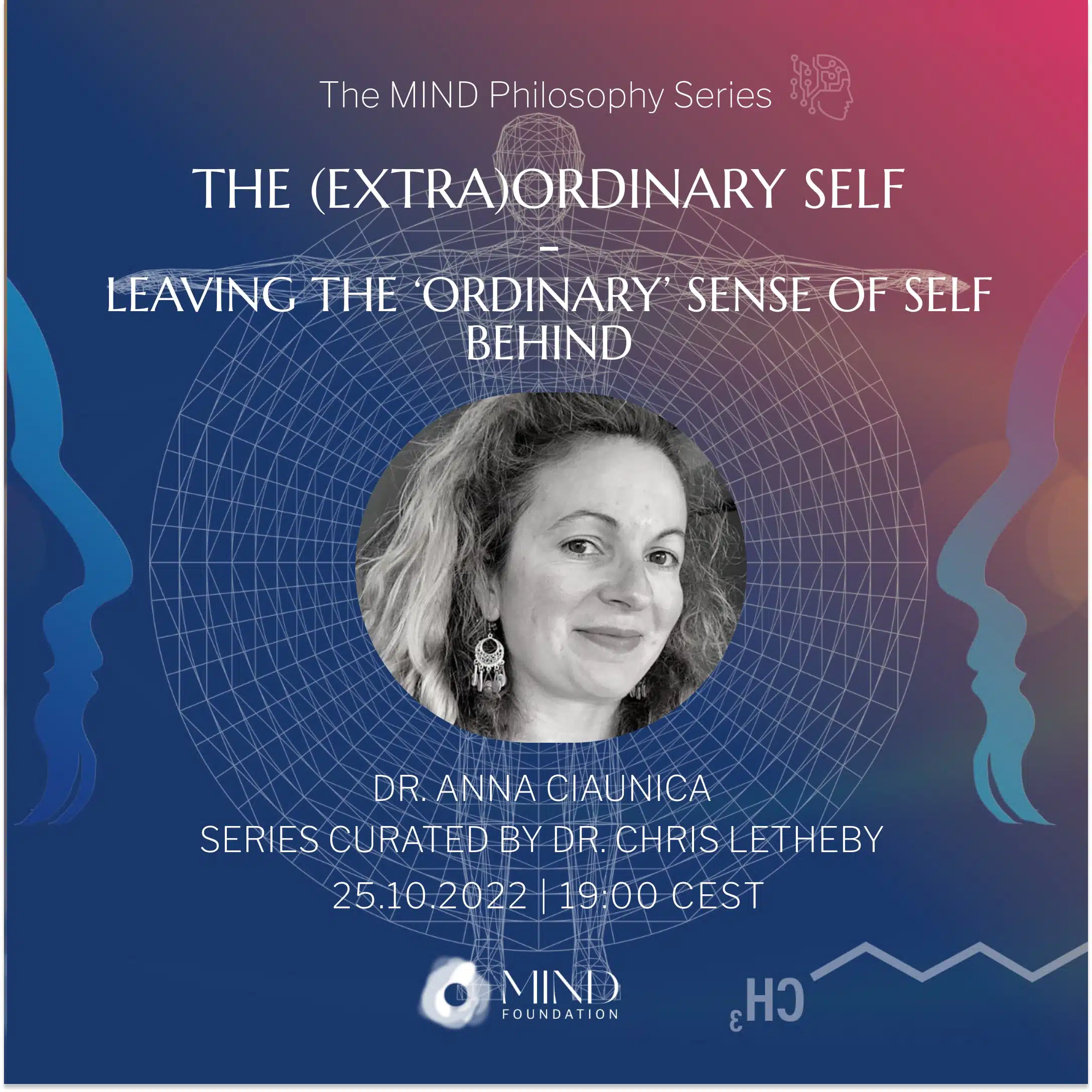
When you wake up in the morning in your home, you expect your walls to be of a certain colour, your hands of a certain shape and size. When you look in the mirror, you expect to see a face that is ‘familiar’ to you: your face. You may experience some changes: for example, today your room is colder than usual and your face looks more tired than usual. But you can still recognize your ‘self’ in your familiar environment, your home.
Across times and cultures, humans constantly and intentionally aimed to radically change their selves, by ‘losing’ or ‘escaping’ their familiar, ordinary self via spiritual practices, psychedelics and creatives endeavours. In this talk, Dr. Anna Ciaunica will explore radical changes in self-experiences, spanning from the ‘ordinary’ to the ‘extraordinary’ sense of self.
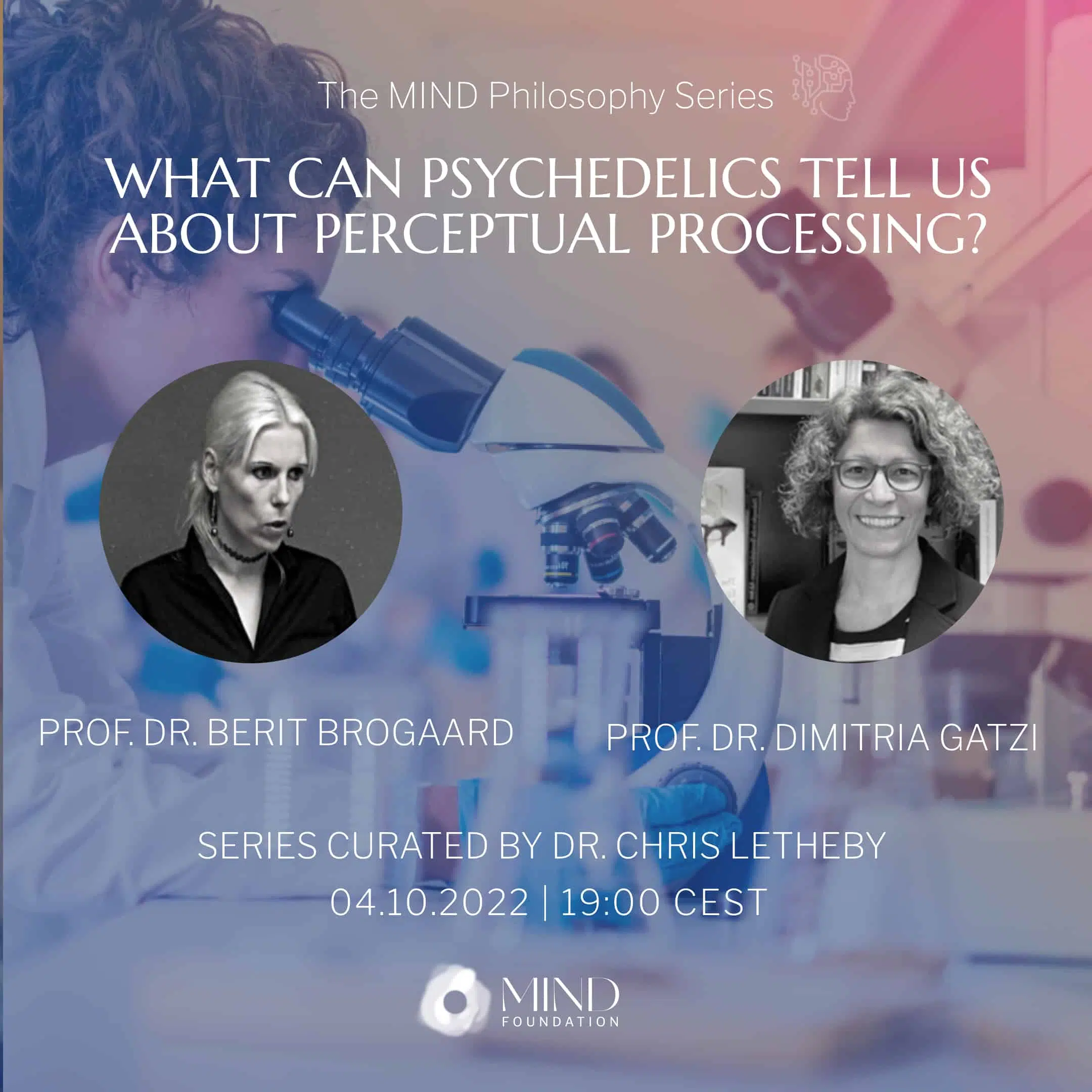
Prof. Dr. Dimitria Gatzi and Prof. Dr. Berit Brogaard – What can psychedelics tell us about perceptual processing?
Recent scientific findings indicate that psilocybin-induced visual distortions and impaired executive functioning originate in temporary disruptions of bottom-up and top-down attentional mechanisms.
This lecture argues that the predictive processing account of psychedelic experiences lacks the resources to provide an adequate account of psychedelic experiences and propose an alternative theory of perceptual processing that can explain how the psilocybin-induced disruptions of attentional mechanisms may elicit psychedelic experiences.
Dr. Jaipreet Mattu – Psychedelic Psychiatry and Philosophy of Science
Psychedelics are at the forefront of psychiatry and neuroscience, with an evolving sentiment that they can revolutionize psychiatry by changing the way we understand and treat mental illness.
This lecture will bring psychedelic evidence to bear on philosophical issues within psychiatry from the perspective of philosophy of science such as the nature of psychiatric disorders and psychiatric nosology. First, it will provide an overview of traditional themes in philosophy of psychiatry and the debates that arise within. Second, it will summarize recent developments in psychedelic research and outline the implications they have for philosophy of psychiatry. Third, it will describe the kind of evidence that neuroscientists aim to discover and then show how psychedelics pose interesting challenges in both clinical and laboratory settings. It will finish with a conclusion by highlighting important developments in philosophy of science that can be used as conceptual tools for overcoming some of these challenges.
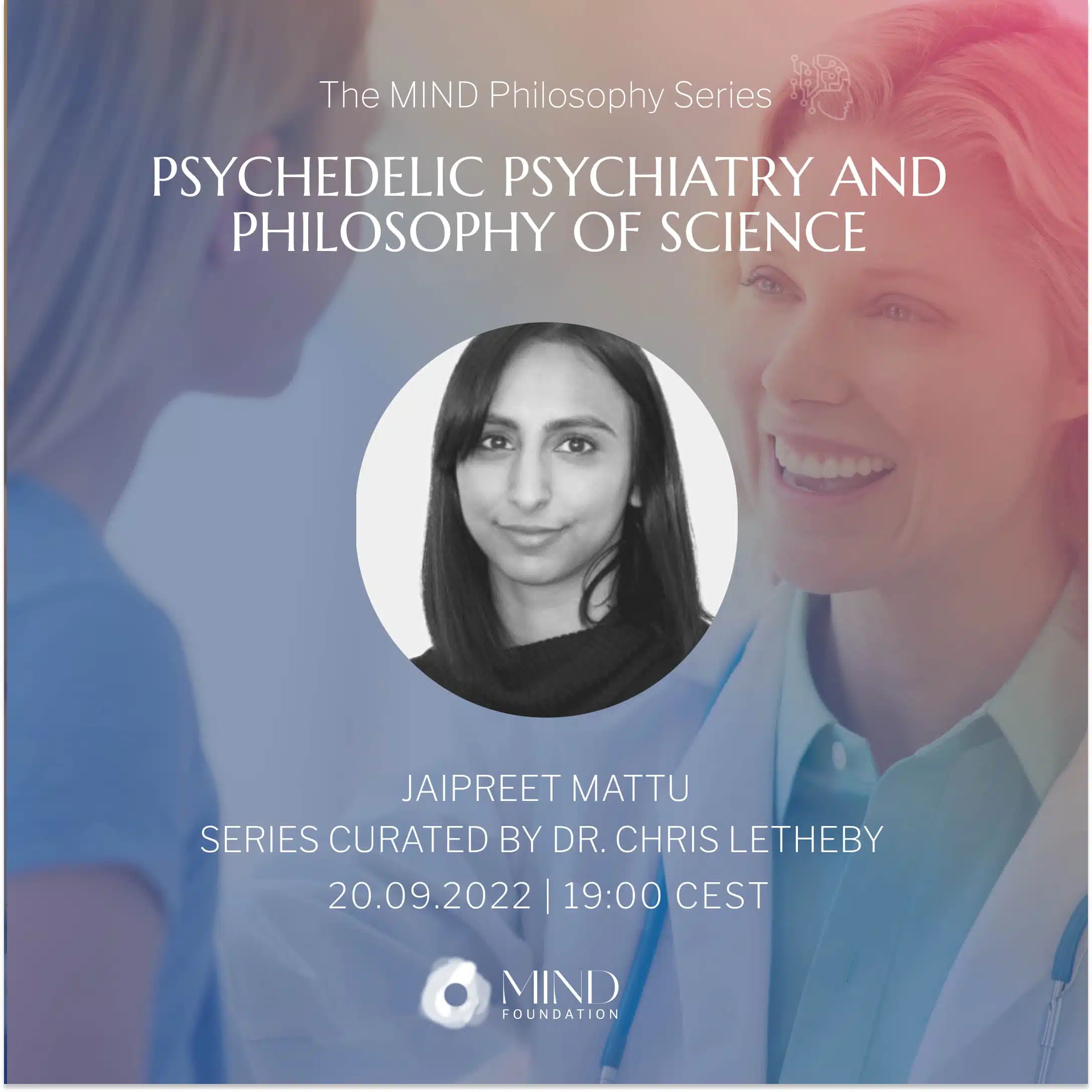
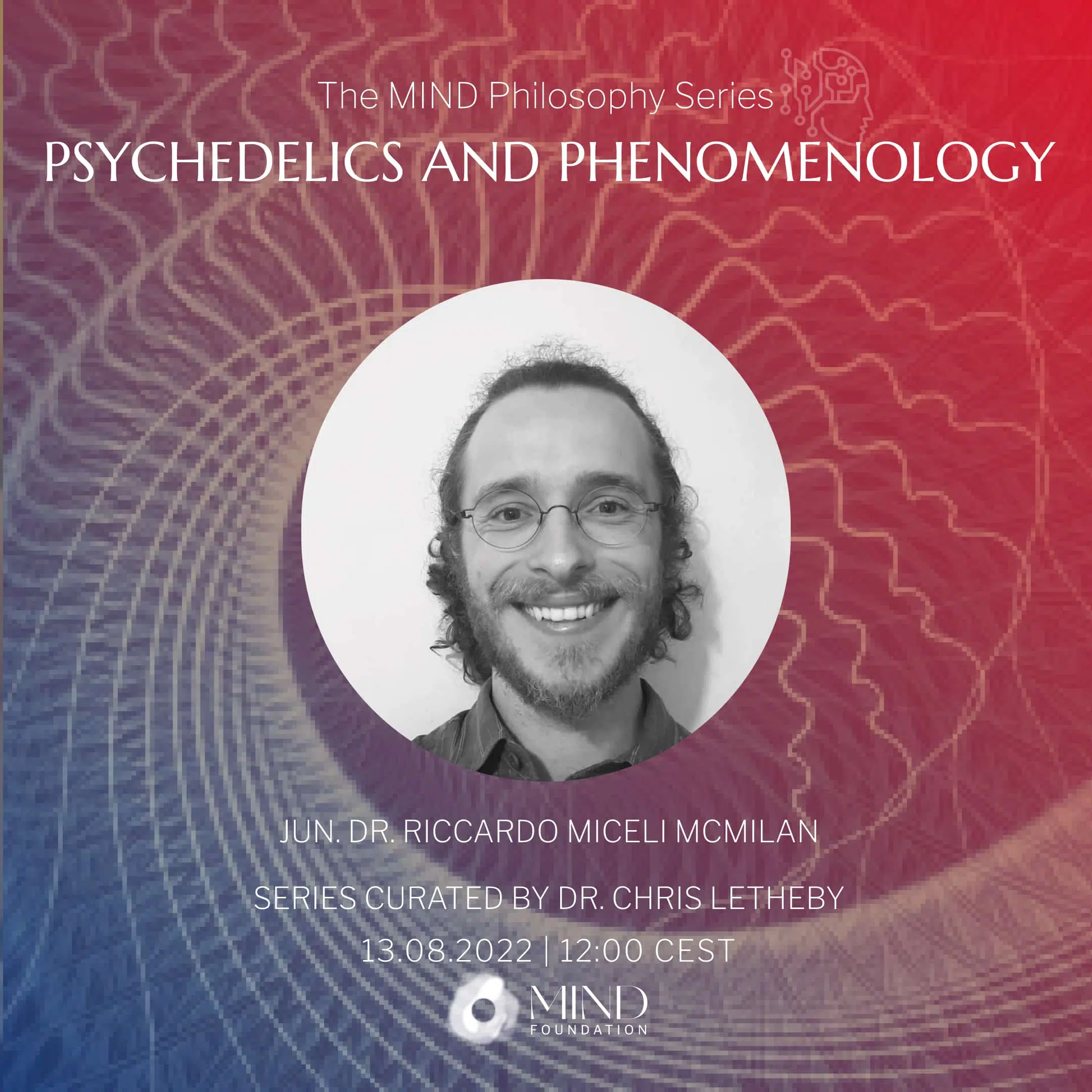
Jun. Dr. Ricardo Miceli McMilan – Psychedelics and phenomenology
This talk discusseddiscussed how the philosophical tradition of phenomenology can inform our understanding on the subjective effects of psychedelic compounds. Furthermore, it was argued that a new interdisciplinary area of investigation called Psychedelic Phenomenology is needed. This investigation will described, as well as how this investigation would inform both the fields of psychedelic science and phenomenology respectively.
Assoc. Prof. Dr. Dominic Sisti – Ethical Issues in Psychedelic Research and Treatment
This talk discussed three ethical issues that appear in both research and therapeutic settings. The first relates to the challenges inherent in obtaining proper informed consent. The second involves if, when, and how psychedelic practitioners may apply therapeutic touch. The third challenge is one of justice and providing equitable access to both psychedelic research and treatment. Furthermore, he concluded with policy recommendations to address these challenges, as research accelerates and regulatory approval appears likely in the next 2-3 years.
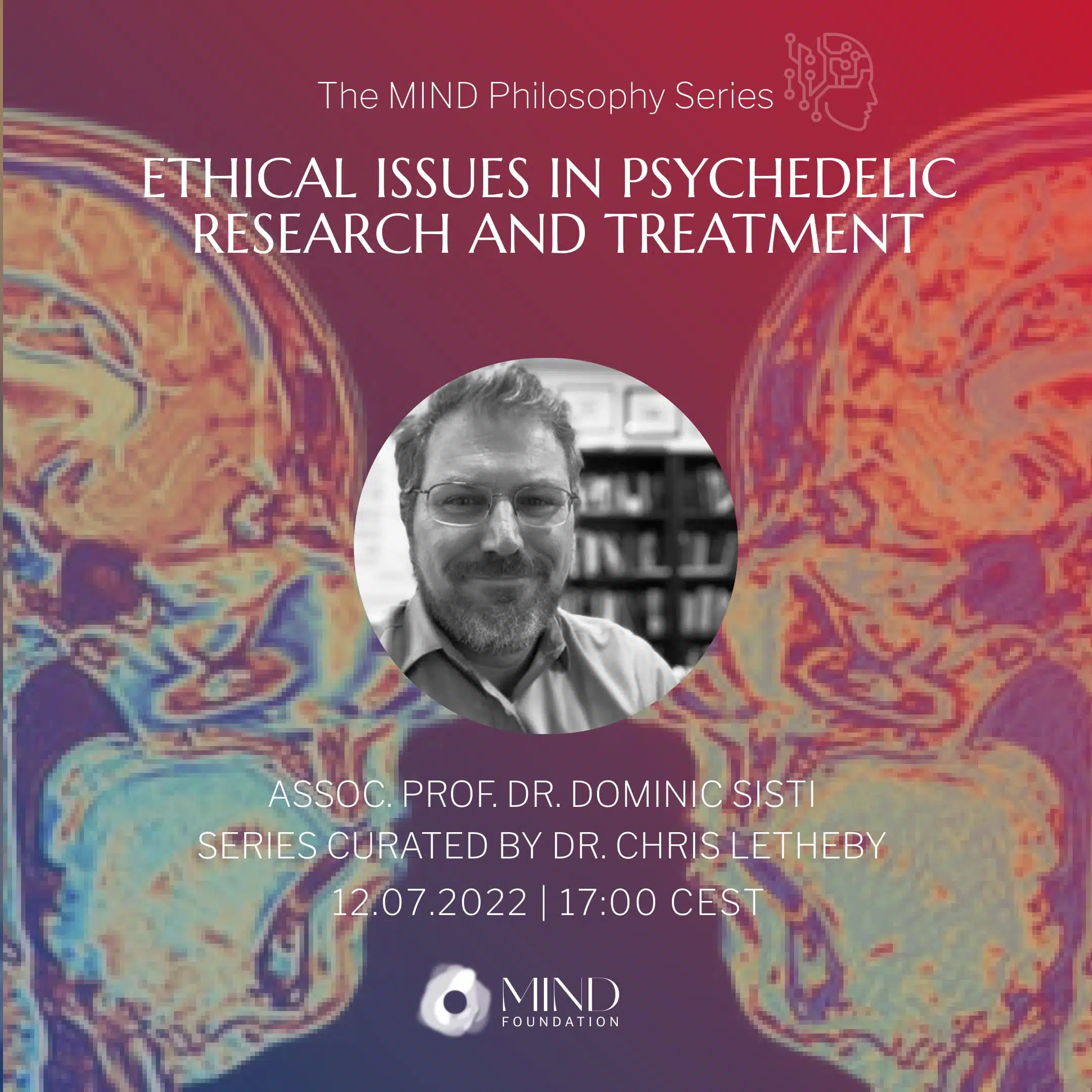
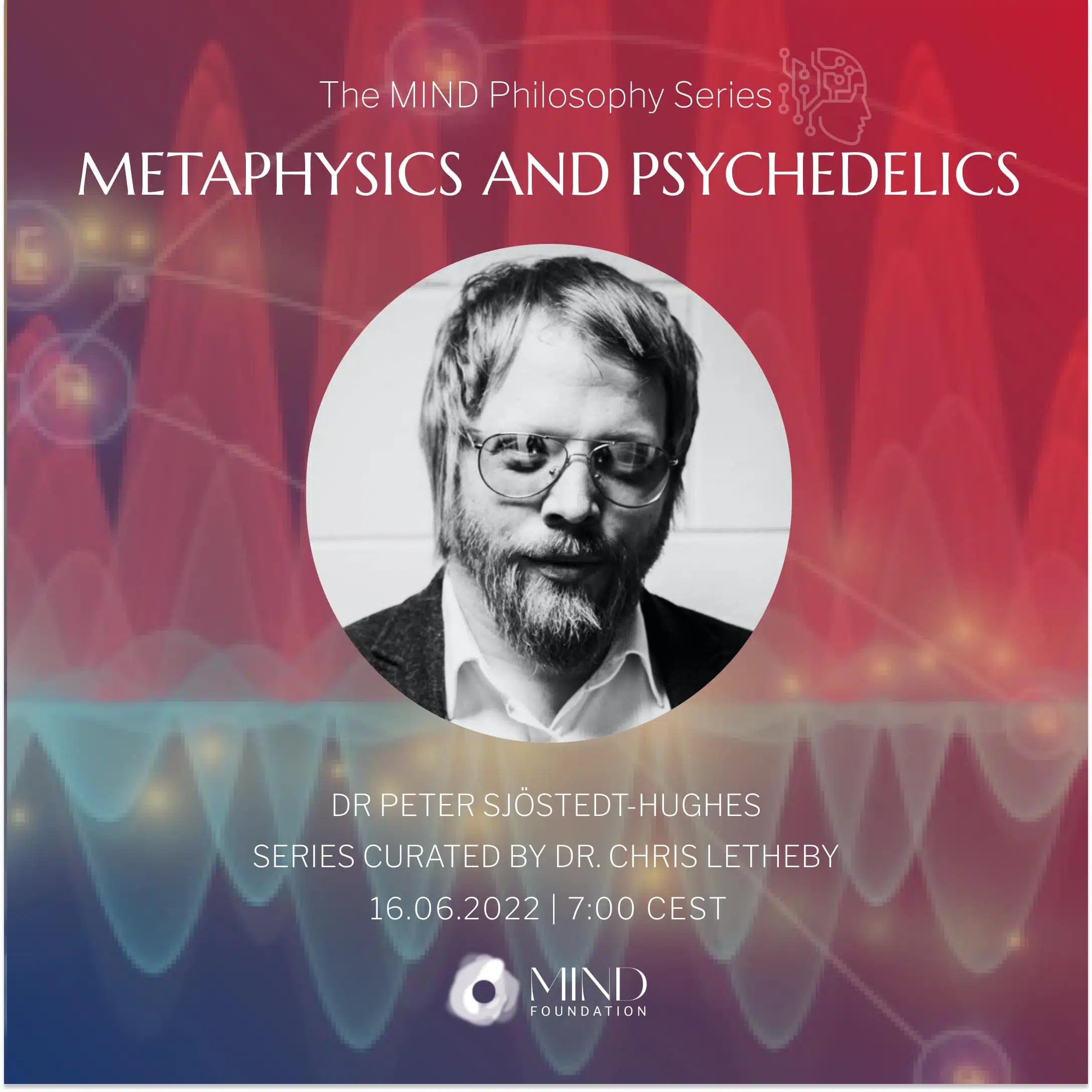
Dr. Sjöstedt-Hughes – Metaphysics and Psychedelics
Psychedelics can occasion intense metaphysical experiences, at times shifting a person’s beliefs from one metaphysical system to another. Are such shifts delusional, or might they carry an element of truth?
This lecture was about how we might make sense of such psychedelic experiences by critically framing them through a host of rational metaphysical systems and issues – especially through the notion of ‘substance’ and its corollaries of physicalism, idealism, dualism, and monism. These in turn was set against the mind-matter problem, the explanatory gap, to show that our ignorance of this gap should keep our minds open to alternate metaphysical possibilities concerning its solution. The focus in this talk was on monism in this respect, especially the monisms of Spinoza and A. N. Whitehead.
Dr Peter Sjöstedt-Hughes is philosopher of mind and metaphysics who specialises in the thought of Spinoza, Nietzsche, Bergson, and Whitehead, and in fields pertaining to altered and panpsychological states of consciousness. He is a research fellow and associate lecturer at the University of Exeter where he has co-founded the Philosophy of Psychedelics Exeter Research Group, the ambit of which includes taught modules, conferences, workshops, and publications.
Peter is the author of Noumenautics, Modes of Sentience, editor of Bloomsbury’s Philosophy and Psychedelics volume, the TEDx Talker on ‘psychedelics and consciousness’, and he is inspiration to the inhuman philosopher Marvel Superhero, Karnak.
Dr. Chris Letheby – Psychedelics and Epistemology
This lecture gave an overview of epistemological issues concerning psychedelic experience.
According to some traditional views, psychedelic use can be a way to acquire metaphysical knowledge of non-physical levels of reality, or paranormal knowledge of various forms, but many academic philosophers are sceptical about such claims. However, even if such claims are false, psychedelic use may still have other benefits for knowledge acquisition. This talk described the main epistemic benefits that have been attributed to psychedelic experience in recent philosophy, and also discuss the possibility of indirect epistemic benefits resulting not from the psychedelic experience itself, but from its lasting psychological effects, as well as the possibility of epistemic risks or harms resulting from psychedelic use.
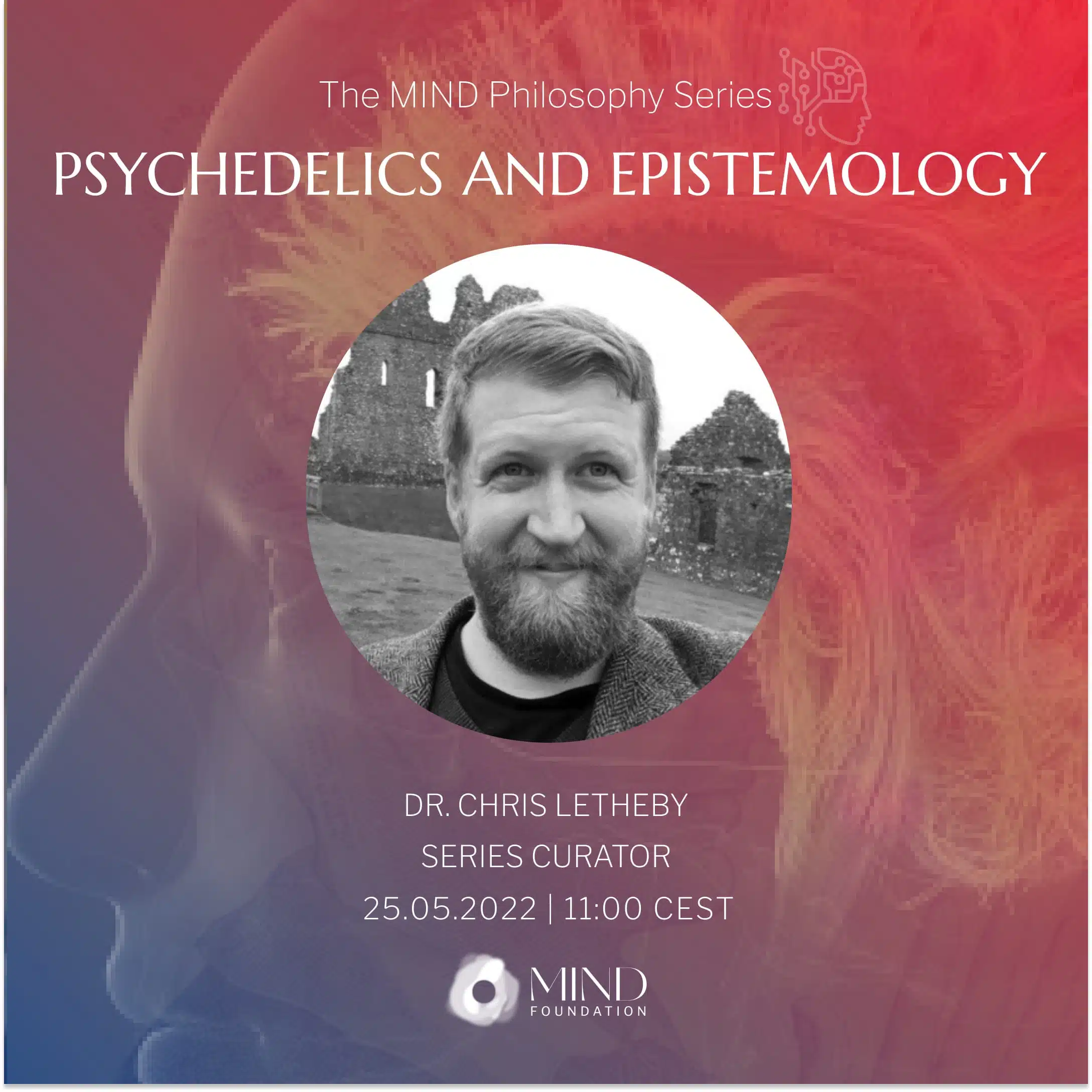

Dr. Aidan Lyon – The Concept of Psychedelic Experience
This lecture analysed the concept of psychedelic experience as introduced by Humphry Osmond in 1957 and compared this with how the concept is used today. Lyon argued that there is scientific value in returning to Osmond’s intended meaning of the term — as a mind-revealing experience — and presented a conceptual framework that makes this idea more philosophically precise. This framework can help us understand the other effects that psychedelics may have on the mind (besides revealing it) and how they interact with other interventions on the mind, such as meditation and changes to set and setting. Finally, Dr. Aidan Lyon discussed how the concept of psychedelic experience is deeply related to historical conceptions of wisdom and outlined a methodology for doing philosophy that is rooted in psychedelic experience.
MIND Foundation Newsletter
Sign up for our newsletter and we’ll keep you up to date with everything to do with the MIND Foundation.




